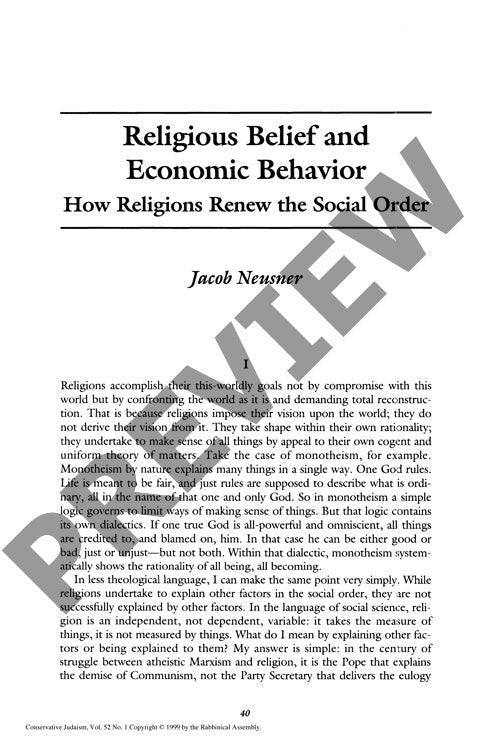Religious Belief and Economic Behavior H
Couldn't load pickup availability
When ancient rabbis reimagined wealth as Torah knowledge rather than land ownership, they revolutionized Jewish economic thought. Through comparative textual analysis of the Mishnah (ca. 200 C.E.) and later Talmudic writings (3rd-7th centuries), this research traces how Jewish religious authorities transformed Aristotelian economic principles into distinctly religious frameworks. Early Mishnaic authorities initially adopted and reformed existing Greek concepts, maintaining land-based definitions of wealth while extending biblical prohibitions on usury. However, later Talmudic scholars enacted a more radical shift by establishing Torah-learning as the fundamental unit of value—creating what can be termed a "transvaluation of value." This transformation represented not merely spiritual reorientation but a complete reconceptualization of scarcity, replacing finite land with potentially infinite knowledge. By examining these contrasting reformist and revolutionary religious responses to economic order, the research demonstrates that revolutionary religious systems achieve more lasting transformation by confronting rather than compromising with existing worldly structures. The findings reveal religions as independent rather than dependent variables in social systems, imposing their own rationality upon the world rather than deriving their vision from it, with significant implications for understanding religious influence on economic behavior and social order.

More Information
-
Physical Description
-
Publication Information
Published 1999
ISBN
-
Publication Credits
Jacob Neusner

